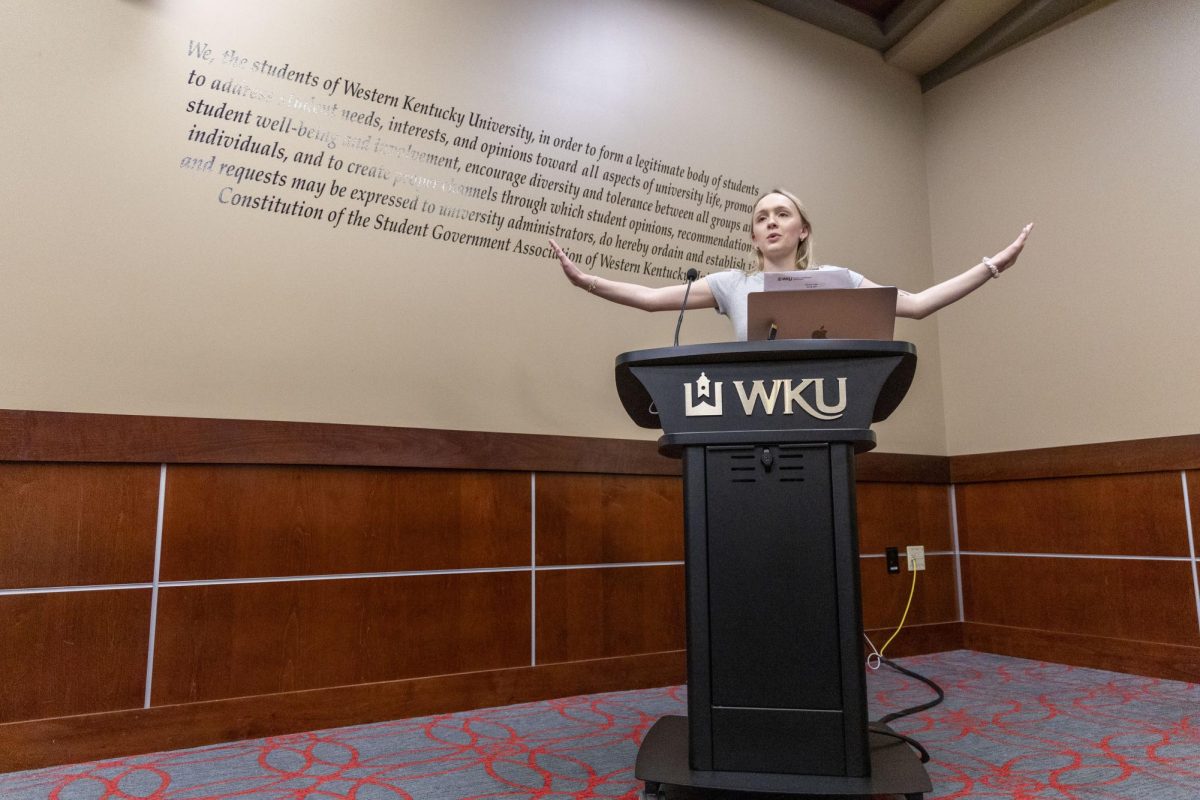Potter College outlines merger plan in midst of program transformations
November 5, 2019
Following a decline in student enrollment and recommendations from WKU administration and faculty, Potter College of Arts and Letters is considering creating a merged program out of the master’s in public administration program and the master’s in criminology program.
Larry Snyder, Potter College dean, said the merger comes at a time where the university’s academic reach is minimizing.
“We’re at that point where the footprint of the university is shrinking, and we are contracting as a college and a university,” Snyder said. “We can’t do everything we once did.”
This merger comes after two graduate programs, the master’s in sociology and the master’s in social responsibility and sustainable communities, were recommended for suspension by WKU’s Comprehensive Academic Program Evaluation committee.
Currently, the public administration graduate program has been assigned “transform” status by the CAPE committee, Snyder said. “Transform” status is given to programs in need of restructuring in order to continue being offered to students. If the merger goes through, Snyder said, a “criminology-specific certificate” program within public administration is likely.
“Further expansion of the MPA is still in the planning stage,” Snyder said. “But I am hopeful that we will have a concrete plan to consider early in the spring term.”
Snyder said there was originally a plan to merge the master’s in sociology with the master’s in SRSC, but the plan ultimately did not come to fruition.
“Basically, my recommendation to the CAPE committee was transforming both of those M.A.’s to a new hybrid program,” Snyder said. “After almost a year in conversation, faculty in those programs decided they could not go forward any further with the merger because the program would require additional resources.”
There are many opportunities for students who pursue a master’s in public administration. Snyder said many states require the degree for local government positions, and a master’s in public administration is helpful for students who plan to work in nonprofit administration.
“What we’re trying to do is highlight this degree as a track to prepare professionals to move into administrative positions coming out of here,” Snyder said.
Snyder said if the program merger goes through, he would like to see classes begin in the Fall 2020 semester. Snyder also outlined his goals for enrollment in the program.
“I’d like us to be easily at 20 [students] in the next year for enrollment, and I’d like to see it double within two,” Snyder said.
If the merger goes through, Potter College has plans for keeping students enrolled in the program.
“Part of it’s going to be marketing,” Snyder said. “We’re going to work with [Division of Extended Learning and Outreach]. We’ll need to work with the university marketing, with public relations. We need to do a better job getting the word out.”
Merrall Price, associate dean of Potter College, said if the merger goes through, it will lead to a stronger student body within the program.
Price also said the plan is looking at alternatives for the programs in the college.
“We have several programs that have a small number of students, and one of the possibilities is thinking about a more sustainable program, where we have a core and different electives and different areas,” Price said.
Price said faculty in the master’s in criminology and the master’s in public administration courses have helped inspire some of the discussion around the merger plan.
“Faculty are aware of their course rotation and the different obligations that they have to teach various classes,” Price said.
Price said the changes in Potter College have come partly from CAPE and partly from faculty in the college.
“We’re interested in figuring out how to combine the courses that are strongest and how to make sure students’ learning outcomes are being met,” Price said.
Scott Lasley, department head for political science, said he is excited for the possibilities a program merger may bring.
“It is too early to determine what form the collaboration might take,” Lasley said. “But [we] are hopeful that by working together we can develop a program that will be of interest and of benefit to students.”
Lasley said faculty within the political science department are “generally excited” about the benefits a program merger may bring.
Additionally, interest is being paid to exploring ways in which curriculum can be integrated into both criminology and public administration, Lasley said.
“The key is to create something that is positive for students and works for all parties,” Lasley said.
Reporter Jack Dobbs can be reached at jack.dobbs469@topper.wku.edu. Follow him on Twitter at @jackrdobbs.













